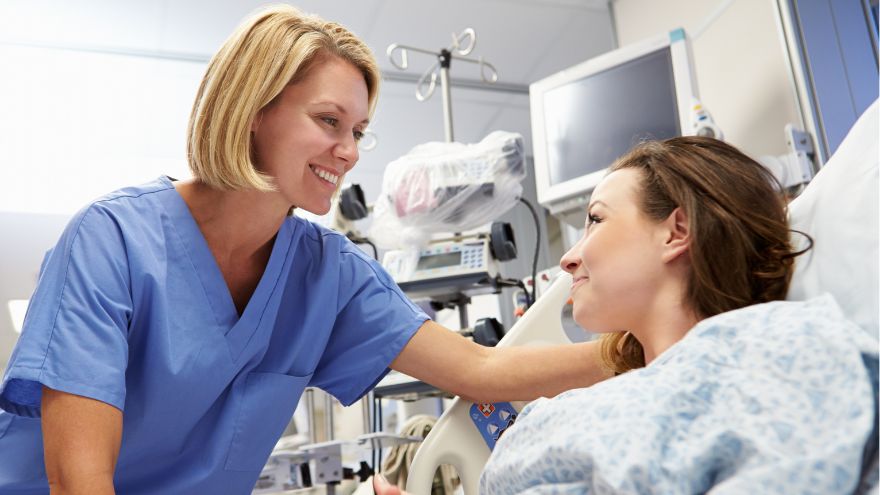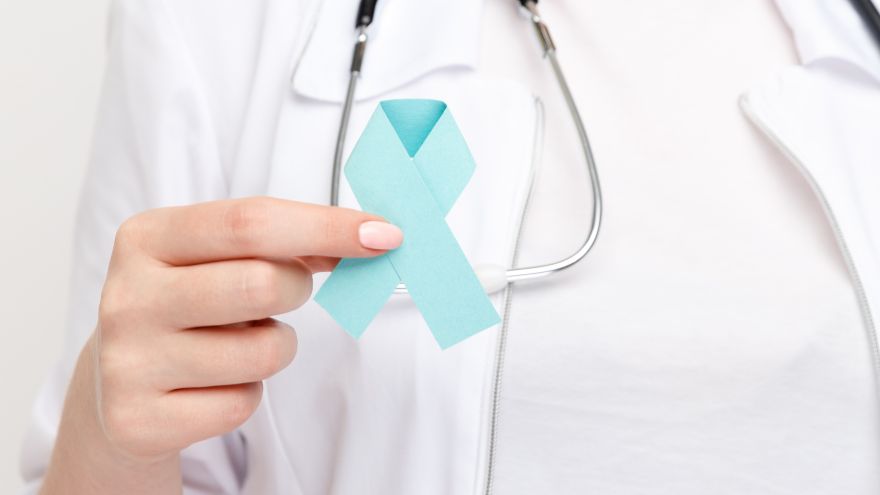Buscar
-
Life after Lymphedema Diagnosis: ¿Qué esperar?
Managing lymphedema effectively is essential for enhancing the quality of life for individuals affected by this condition. Katherine Bunker, a Physical Therapist and Certified Lymphedema Therapist (PT, DPT, CLT) at Renown, has expertise in this area and her insights offer valuable strategies for managing lymphedema. Lymphedema is a chronic condition characterized by swelling in one or more limbs due to a blockage in the lymphatic system. This condition can result from cancer treatments, surgery, infection, or can sometimes be congenital. While it can be challenging to live with lymphedema, understanding the condition and adopting specific lifestyle changes and strategies can significantly improve the quality of life. Understanding Lymphedema Educating yourself about lymphedema is crucial. Understanding the causes, symptoms, and potential complications can provide you with the tools to manage the condition proactively. Lymphedema can lead to discomfort, decreased mobility, and in severe cases, infections such as cellulitis. Therefore, recognizing the early signs and knowing when to seek medical advice is essential. Medical Management Consulting with healthcare professionals who specialize in lymphedema is critical. A physiotherapist or occupational therapist trained in lymphedema management can tailor a treatment plan for you that can include the following: Compression Therapy - Wearing prescribed compression garments can help move the lymph fluid and reduce swelling. It’s essential to get fitted by a professional and understand how to use these garments correctly. Manual Lymphatic Drainage (MLD) a gentle massage technique that encourages the movement of lymph fluid out of the affected limb. It’s typically performed by a trained therapist but ask about self-massage techniques you can do at home.
Read More About Life after Lymphedema Diagnosis: What to Expect
-
Most Common Reasons Women Visit the ER
If you or someone you know is experiencing a medical emergency, it's essential to seek immediate attention by calling 9-1-1 or visiting the ER for a thorough evaluation by a trained medical professional and timely intervention. Access to a convenient and trusted emergency room (ER) is critical to any person’s healthcare needs, including medical emergencies related to women’s health. We explored some common scenarios and warning signs prompting women to seek immediate medical attention with Aiden Gould, Board-Certified Emergency Physician at Renown Health. When your medical emergency can’t wait, Renown ER is here to provide you with the region’s leading emergency care to diagnose and treat your condition or illness. Understanding Common Reasons Women Visit the Emergency Room Gynecological Emergencies: One of the most common reasons women may seek emergency care is due to gynecological emergencies such as severe pelvic pain, abnormal bleeding or complications related to pregnancy. These issues can be alarming and warrant immediate medical attention if the issue persists or is out of the ordinary for you. Emotional and Physical Well-Being: For those facing diverse medical or mental health emergencies, seeking prompt assistance is crucial for a thorough assessment and safe, timely intervention. Renown ER teams are equipped with trained professionals who provide compassionate care for individuals seeking help in the following situations: Suicide risk assessment and intervention Substance abuse assessment Assault and trauma care Crisis support and intervention Resources for ongoing care and well-being support Severe Abdominal Pain: Unexplained and severe abdominal pain that is substantially different than what is normal for you is a symptom you should never ignore as it can indicate underlying issues. Warning signs of an acute medical situation include fever, vomiting or a rapid change in motor function and inability to move due to pain. Respiratory Distress: Difficulty breathing, persistent coughing and other respiratory issues can be especially concerning. Women with pre-existing respiratory conditions like asthma or those experiencing sudden respiratory distress should seek immediate care from a medical professional. Warning signs of respiratory distress may include a significant change in one’s breathing rate, changing of the skin color to blue, gray or paleness due to lack of oxygen, nose flaring and chest retractions. Cardiovascular Emergencies: Heart-related issues are not exclusive to men. Women can also experience cardiovascular emergencies that often go undiagnosed because symptoms differ from men. Symptoms like chest pain, extreme fatigue, vomiting or pain in the abdomen, shortness of breath or palpitations should be evaluated by an emergency medical professional as timely intervention is critical in such cases. Renown leads the region in cardiology care with our technological expertise and patient-centered approach. Our comprehensive team diagnoses heart disease and other cardiac conditions, offering personalized treatment plans. Neurological Symptoms: Sudden and severe headaches, seizures or other neurological symptoms may prompt women to visit the ER if symptoms are extremely disorientating or debilitating. These symptoms could be indicative of various conditions from mild to severe, including strokes or neurological disorders that require prompt evaluation. Renown Regional Medical Center is a Comprehensive Stroke Center, providing primary stroke care including evaluation, treatment and education to patients who arrive at a Renown facility with the signs and symptoms of a stroke. Compassionate Care in Times of Need At Renown Health, we understand that your time is valuable, especially in emergency situations. That's why we strive to provide patients with exceptional care, compassion and respect. Plan ahead and make informed decisions about seeking medical care by viewing your estimated triage wait time at a Renown ER.
-
Importance of Safe Sleep
In today's fast-paced society, it is understandable for parents to want to take shortcuts in caring for their little ones. A s a result, It is tempting to leave a sleeping infant in a car seat or swing after a long day of errands or when you need a moment to catch your breath. But, as convenient as these devices may be, they pose a serious risk to your child's safety. Why Car Seats and Swings Pose Risks for Infant Sleep Car seats, swings, and bouncers are quick and convenient ways to feed, hold, and sleep an infant. Not out of malice or discontent, but again from the need for quick and easy access to baby care in an already busy lifestyle. However, the risks outweigh the benefits. The American Academy of Pediatrics (AAP) states that “infants should be moved to a crib, bassinet, or play yard for sleeping as soon as is practical.” If a parent must use a car seat or other sitting device, they should only do so for a short period of time and never as a substitute for a proper sleeping environment. Leaving a sleeping infant in a sitting device, such as a car seat or swing, can create unsafe sleeping conditions. The American Academy of Pediatrics (AAP) warns that doing so increases the risk of sudden infant death syndrome (SIDS) and positional asphyxia. This is because infants can easily slump over or become entangled in the straps, blocking their airway, and causing suffocation. Car seats, swings, and bouncers are quick and convenient ways to feed, hold, and sleep an infant. Not out of malice or discontent, but again from the need for quick and easy access to baby care in an already busy lifestyle. However, the risks outweigh the benefits. The AAP states: Infants should be moved to a crib, bassinet, or play yard for sleeping as soon as is practical. If a parent must use a car seat or other sitting device, they should only do so for a short period and never as a substitute for a proper sleeping environment. Leaving a sleeping infant in a sitting device, such as a car seat or swing, can create unsafe sleeping conditions. The AAP warns that doing so increases the risk of sudden infant death syndrome (SIDS) and positional asphyxia. In addition, infants can easily slump over or become entangled in the straps, blocking their airways and causing suffocation.
-
Learn How to Manage Lymphedema
Katherine Bunker, Physical Therapist and Certified Lymphedema Therapist (PT, DPT, CLT) at Renown, discusses how patients can manage lymphedema with changes to daily routines along with diet and exercise. Lymphedema is a condition that affects millions of people around the world. It is a chronic and progressive disorder that results in swelling of the arms, legs, or other parts of the body due to an accumulation of lymph fluid. Lymphedema can occur because of cancer treatments, surgery, or other medical conditions. Managing Lymphedema Treatments to help reduce symptoms such as pain, swelling and discomfort associated with lymphedema can include compression garments, exercise, skin care, manual lymphatic drainage and pneumatic compression. The goal is to avoid triggering the onset of lymphedema. Lymphedema can present itself immediately after surgery or radiation. It can appear months later or even years later. There are many factors that influence the development of lymphedema which is why prevention is so important. If you have had injury or disruption to your lymphatic system, then: Avoid injuries to the skin near the affected area. For example: wearing gloves during gardening, using bug spray to ward off mosquitos, covering your limbs while playing with pets, keeping nails clean and avoiding cutting too close to cuticle, utilizing electric razors at the armpit (instead of a traditional razor)., Avoid blood pressure readings to the affected limb or request blood pressure to be taken manually, not by a machine. Avoid heat like saunas, hot tubs, sunburns, hot packs, and even massages. Avoid tight jewelry like rings or bracelets, which can be too tight.
-
Get Ready for Baby with Childbirth Classes
By taking our pregnancy and birth class, you will gain the tools necessary to have a safe and empowering birth experience for both you and your baby. Chris Marlo, Childbirth Educator at Renown Health explains why birth classes are important. For questions regarding classes or tours, contact Chris Marlo: chris.marlo@renown.org 775-982-4352 What is a Certified Childbirth Educator/Doula? If you are expecting a baby, Renown has a wide variety of classes to help prepare you for birth. Classes are taught by certified childbirth educators and doulas. A certified childbirth educator is a trusted resource who has a passion for educating expecting parents about childbirth, and will provide you with non-biased, evidence-based information. A doula is a professional labor assistant who provides physical and emotional support during pregnancy, childbirth and postpartum. As you prepare for birth, our certified educators will guide you each step of the way and ensure you receive the quality care you deserve.




